 Hence if the numerator and denominator of a fraction be multiplied by the same number the value of the fraction is not altered. Hence if the numerator and denominator of a fraction be multiplied by the same number the value of the fraction is not altered.  Algebra - Page 53by Isaac Todhunter - 1858 - 496 pagesFull view Algebra - Page 53by Isaac Todhunter - 1858 - 496 pagesFull view - About this book
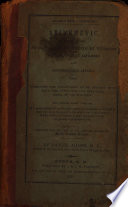 | Daniel Adams - 1839 - 268 pages
...mixed number by a mixed number? 23. How does it appear, that in multiplying both terms of the fraction by the same number the value of the fraction is not altered ? 24. How many ways are there to divide a fraction by a whole number? — What are they? 25. How does... | |
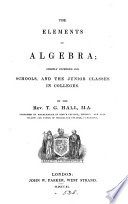 | Thomas Grainger Hall - 1840 - 266 pages
...a, as we have just seen ; therefore multiplying both by another quantity m, ia mo x т = nia; \. e. if the numerator and denominator of a fraction be multiplied by the same quantity, its value remains unaltered. -rr 1 intl a .„ , , , COR. Hence also since — , = T : if... | |
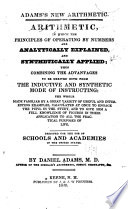 | Daniel Adams - Arithmetic - 1840 - 278 pages
...mixed number by a mixed number ? 23. How does it appear, that in multiplying both terms of the fraction by the same number the value of the fraction is not altered ? 24. How many ways are there to divide a fraction by a whole number? — What are they? 25. How does... | |
 | James Wood - Algebra - 1841 - 492 pages
...to - of £3, which is also 15 shillings. 12. If the numerator and denominator of a fraction be both multiplied by the same number, the value of the fraction is not altered. For, if the numerator be multiplied by any number, the fraction is multiplied by that number (Art. 9); and... | |
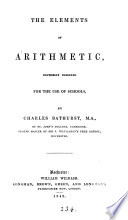 | Charles Bathurst (schoolmaster.) - 1842 - 158 pages
...conceiting. OBSERVATIONS (1). Since, in cancelling, Jioth the numerator and denominator are divided by the same number, the value of the fraction is not altered. (2). All numbers ending in 5 and 0 are divisible by 6. (3). All numbers ending in 0 are divisible by... | |
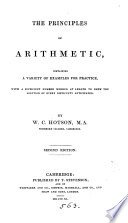 | Wales Christopher Hotson - 1842 - 306 pages
...given number . . 3 13 If both the numerator and denominator of a fraction be multiplied or divided by the same number, the value of the fraction is not altered . . . . 4 14 To express an integer as a fraction having a given denominator .. .. .. .. 5 15 To reduce... | |
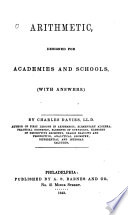 | Charles DAVIES (LL.D.) - Arithmetic - 1843 - 348 pages
...will be just equal to the decrease from multiplying the denominator; hence we have, PROPOSITION V. If the numerator and denominator of a fraction be...multiplied by the same number, the value of the fraction will remain unchanged. Q. If the numerator of a fraction be multiplied by a number, how many limes... | |
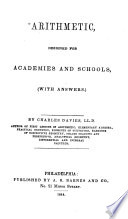 | Charles Davies - Arithmetic - 1844 - 358 pages
...will be just equal to the decrease from multiplying the denominator ; hence •we have, PROPOSITION V. If the numerator and denominator of a fraction be...multiplied by the same number, the value of the fraction will remain unchanged. Q. If the numerator of a fraction be multiplied by a number, how many times... | |
 | Thomas Tate (mathematical master.) - 1844 - 184 pages
...•fo are To 6 -£$ are twice -fg, or -fg -fa are 3 times -^5-, or J &c. This exercise proves that if the numerator and denominator of a fraction be multiplied by the same number, the fraction is not altered in value. It will also be seen that as by multiplying the denominator of a... | |
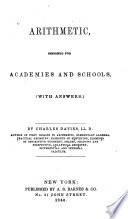 | Charles Davies - Arithmetic - 1846 - 362 pages
...just equal to the decrease from multiplying the denominator; hence we have, PROPOSITION V. If tlie numerator and denominator of a fraction be multiplied by the same number, the value of the fraction will remain unchanged. Q. If the numerator of a fraction be multiplied by a number, how many times... | |
| |